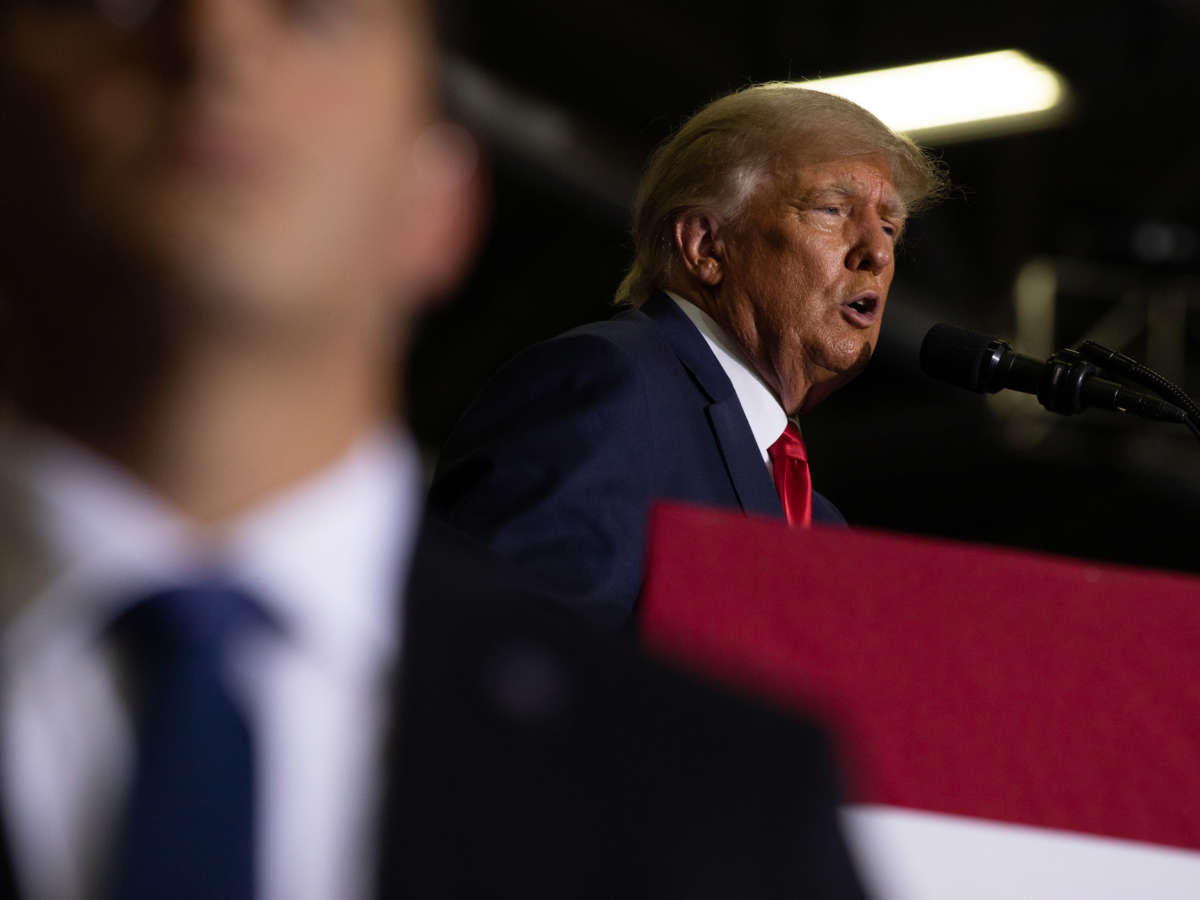Republican Party insiders believe the Department of Justice (DOJ) will likely pursue an indictment of former President Donald Trump after the midterms, a new report details.
GOP aides and strategists told The Hill that Attorney General Merrick Garland will likely indict Trump on one or multiple charges two to three months after the elections are held in November. Any charges from the DOJ will likely require Garland’s approval.
Indicting Trump will potentially “end up helping the [former] president,” one of the sources suggested, as charges against him could galvanize Republican-aligned voters to support him more vociferously. Sources noted that this was the effect of the FBI’s search of Trump’s Mar-a-Lago estate in August, in which investigators retrieved government documents — many of which were highly classified — that Trump improperly removed from the White House.
The sources claimed they didn’t have knowledge of the DOJ’s inner workings, saying that their predictions were based on gut instinct and the fact that Garland is facing pressure to act on recent findings uncovered by his department.
While charges against Trump could potentially unite Republican-aligned voters, it’s unlikely that an indictment would move the general public to support him. Although Republicans rallied around Trump in the wake of the Mar-a-Lago search, the former president’s average of favorability ratings among several polls barely moved at all, going from 40.1 percent favorability among the general public on July 31 (just days before the search took place) to a 40.9 percent favorability rating on August 31.
DOJ prosecutors believe they already have enough evidence to charge Trump with a crime relating to his improper removal and storage of government documents. Trump could be charged with obstruction because he responded to a subpoena order earlier this year by affirming that he was no longer keeping classified documents at his home — a statement that was revealed to be a lie after the department found evidence of more than 100 additional classified documents at Mar-a-Lago.
Trump could also be charged by the DOJ for reasons beyond the inquiry. The Justice Department is currently investigating his attempts to overturn the results of the 2020 presidential election, particularly in the run-up to and on the day of January 6, 2021, when a mob of his loyalists stormed the Capitol building.
Trump could be indicted for crimes dating back to the start of his presidency, when he took actions that former Russia investigation special counsel Robert Mueller said could constitute obstruction of justice. Trump has previously claimed that Mueller’s decision not to charge him — which was made because of longstanding DOJ policy not to charge a sitting president — exonerated him of any wrongdoing, a premise that Mueller soundly rejected in May of 2019.
“If we had had confidence that the President clearly did not commit a crime, we would have said so,” Mueller said at the time.
In an op-ed one year ago, Mark Medish, a former member of the National Security Council, and Jonathan M. Winer, a former deputy assistant Secretary of State for international law enforcement, jointly stated that the current attorney general should charge Trump for the actions highlighted in the Mueller report.
Failure of Garland and the DOJ “to review this matter and make a formal prosecutorial determination on whether Trump’s actions constitute criminal obstruction would be a dereliction of duty, transmitting a dangerous signal of impunity from the Justice Department,” they wrote.


